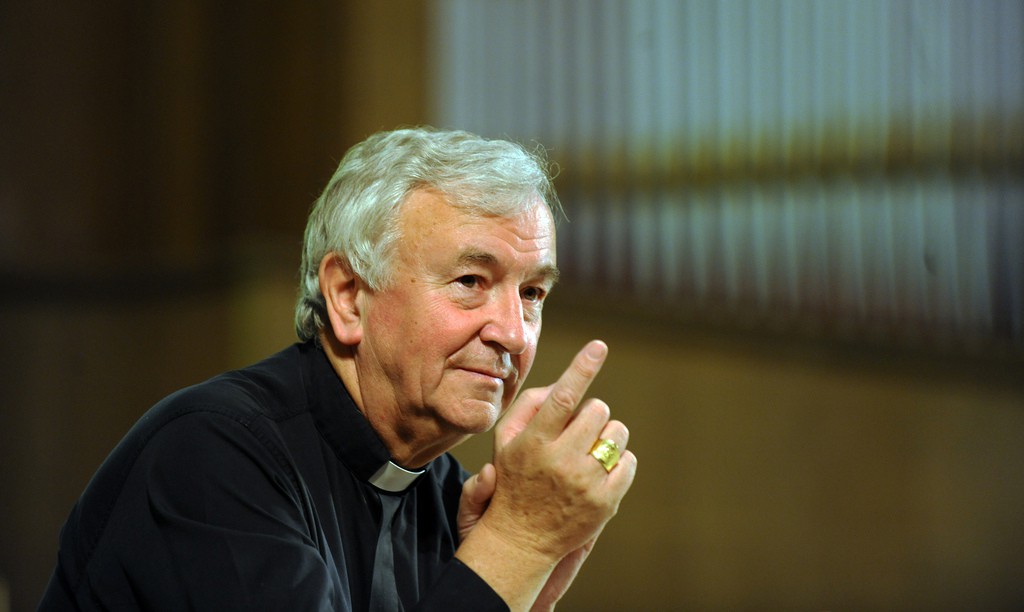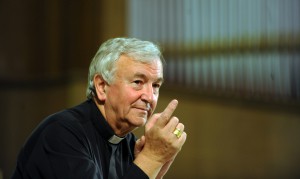15th January 2014
A new British Cardinal


Pope Francis was very clear in his letter to the men on his first list of new cardinals since the beginning of his Pontificate. Being a Cardinal, he said, “means neither a promotion, an honour, nor a decoration; it is simply a service”. Simplicity, humility, sobriety and service are the benchmarks for Pope Francis’s cardinals, characteristics historically not always associated with the so-called “Princes of the Church”. I have no doubt that this will suit Vincent Nichols, Archbishop of Westminster, the first new British cardinal since 2003 and the first from England and Wales since Cardinal Cormac Murphy-O’Connor was appointed in 2001.
There have only been 50 English, Welsh and Scottish cardinals created since the 12th century. It is a select and impressive group. They include one Pope (Adrian IV), men of Royal blood (Henry Beaufort in the 15th century, Reginald Pole – who almost became Pope – in the 16th century, and Henry Stuart, Cardinal York and brother of ‘Bonnie Prince Charlie’, in the 18th century), saints (St John Fisher, the Blessed John Henry Newman), sinners, and great church and national administrators. Vincent Nichols will be the 11th Archbishop of Westminster (the Catholic Metropolitan of England and Wales) in succession to be elevated to cardinal since the See was created in 1850.
While the Pope has explained that it is not a personal honour, the selection of Archbishop Nichols – alongside his appointment last year to the Congregation for Bishops, the Holy See body responsible for making recommendations to the Pope on Episcopal appointments – is without doubt of great significance for Britain. And it also recognises the personal qualities in Vincent Nichols that the Pope has emphasised since the start of his Pontificate. A man of great pastoral experience, from Liverpool to Birmingham and London; dedicated to the service of his community, relations with other Christian churches and with other faiths; focused on the poor and the vulnerable, and searching for practical answers to their difficulties, be it through strengthening the community engagement of business or ensuring decent living standards for all. The responses of Archbishop Nichols’ fellow Catholic bishops, and of the Archbishop of Canterbury have been warm and heartfelt. Her Majesty’s Government, recognising the importance of the appointment, has also congratulated the new cardinal through the Minister for Faith, Baroness Warsi.
It is an understatement to say that, historically speaking, relations between England and Wales and Scotland on one side, and the Holy See on the other, have had their ups and downs. But the positive contribution of the Catholic Church in Britain to the Holy See, both before the Reformation and in more modern times, has been immense and significant. Cardinal Newman noted in his writings that Rome without a strong British presence lacked something essential. As the British Ambassador accredited to the Holy See – the global governance of the Roman Catholic Church – I cannot but agree! I am delighted to see Pope Francis recognising this in his first list of new Cardinals.
We are delighted with the news of Abp. Vincent Nichols forthcoming elevation by the H. H., Pope Francis to Prince of the Holy Church.
May the esteemed Archbishop of Westminster continue to enjoy the blessings that he so richly deserves as a shepherd to his people and as an obedient, faithful, and joyful son of Our Heavenly Father.
Indeed, the nomination of these 19 new cardinals will have a significant impact on the future of the Holy See. Hopefully it will revamp a much needed institution and bring it closer to allof us.